
40 years ago, before the students' claims of openness, fairness and sensitivity, the regime resorted to the Mexican political crime against humanity to safeguard its authoritarianism and its obstinacy.
The movement of 68 was replaced in the following years, for the efforts of democratizing the left and right, as well as by organizations of the slaughter perpetrated on October 2 in Tlatelolco concluded the impossibility of transforming the public power in a peaceful manner . To cope with such attempts, the governments of Luis Echeverria Alvarez and José López Portillo did not appeal to the laws and institutions in place, but organized illegal repressive apparatus put in place in Mexican territory, methods similar to those of the military dictatorships of Central and South America: the forced disappearance, illegal imprisonment, torture and murder of those involved in the guerrilla groups, their families and even people outside the armed struggle.
Four decades later, society has undergone a profound transformation civic and political life, thanks in part to national reflection on the events that led referrals: the country is today a much more conscious citizens of their political rights, more participatory, more tolerant, more accustomed to the puralidad and more critical of the authority in 1968. In contrast, the government has evolved a lot less, and it has forced by circumstances and by social pressure, reluctantly and with haggling. The old PRI monolithism was replaced by cupulares negotiations that are imposed whenever they can on the progress of federalism, the division of powers and culture of legality. The federal executive has lost many of the mechanisms of political control that holds in times of Diaz Ordaz, those so-called "meta-powers" - but has kept intact the arrogance and insensitivity that characterized the old chairs.
In 1988, before the electoral insurgency that was articulated around the candidacy of Cuauhtemoc Cardenas, the government of Miguel de la Madrid resorted to massive distortion of citizen suffrage, and only two years ago, the PAN candidate Vicente Fox worked to exercise it he considered his right to impose a successor in office. With a much less legitimacy, but the inertia of the old authoritarian characteristics presidentialism, Felipe Calderón Hinojosa is now seeking to impose on the country privatization of the oil industry that is rejected by a significant portion of the citizenry and that while it is desirable for the environment business-particularly for foreign companies, goes against the basic national interests.
The backlog of political leaders is crucial to persist today some of the most aggravating features of the old regime and against which the students marched four decades ago. One example is the long-standing impunity for those who, from power, commit abuses against citizens and that is expressed precisely in the absence of justice before the crimes of 68: Echeverria for Calderón, seven presidents have covered up and protected the Responsible intellectuals from the barbarity of Tlatelolco, as we said yesterday, in a message to the Mexican government, the humanitarian organization Amnesty International (AI). At 40 years of that event, the lack of clarification "has left a very deep wound in the town of Mexico" and persist "obstacles that impede bring those responsible to justice," says the letter signed by Karrie Howard, assistant director Agenda for the Americas of AI.
Another inescapable burden that the current drag Mexico last four decades is the criminalization of dissent, repression of opposition political and social violence to free expression since the leaders of the institutions. Are instructive in this regard, the existence of political prisoners in the jails of the country, leaders and activists in San Salvador Atenco and Oaxaca's popular movement, for example, as well as the untenable decision of the Federal Electoral Institute to impose a fine to millionaire Democratic Revolution Party (PRD) for the protest that supporters of former presidential candidate Andres Manuel Lopez Obrador protagonists in the Paseo de la Reforma and the Zocalo this capital in August and September 2006, after presidential disaster of that year .
On Oct. 2, 1968 are not ever forget, but it is possible and desirable to close the wound left by the brutal repression and mass murder ordered by a presidential arrogance, insensitive and authoritarian. This requires clarification and to do justice, and to have a government that guarantees the country and the world that such horrific events will not be repeated ever again.

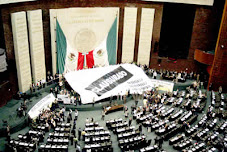
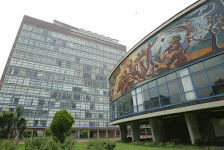
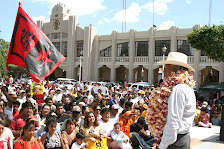
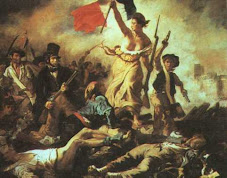
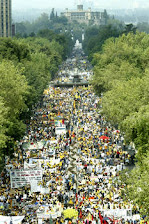



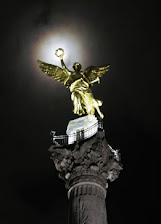
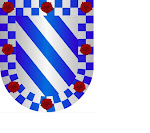

No hay comentarios:
Publicar un comentario